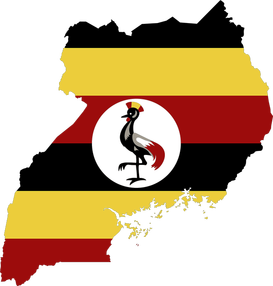Why We Need Open Source Pharma
BY JAMES ARINAITWE

I grew up in rural Western Uganda, where two of my siblings succumbed to measles before their fifth birthday and my father to HIV/AIDS before I turned 10. I often wondered why so many preventable and treatable diseases were still killing the world's poorest and most vulnerable people. Could it be possible that big pharmaceutical companies and big, bureaucracy-laden governments were so vertically aligned in their approach to bringing life-saving medicines to market, that they rarely saw any reason to find solidarity with the communities that would eventually benefit from their inventions and policies? My father and my baby sisters did not die because the vaccines for measles or the antiretroviral drugs for HIV were not available. They died, in large part, because life-saving vaccines and medicines were priced beyond our reach. To complicate this tragedy, my government enacted failed policies to secure the drugs for those who needed them most, Uganda’s marginalized poor. Fortunately, this is likely to change in the not-so-distant future. The Rockefeller and Open Society foundations are sponsoring the first-ever global conference on open source pharmaceuticals. Given the advent of social entrepreneurship and proliferation of market disrupting ideas, such as open data, open software, and crowdsourcing, it is possible that the Open Source Pharma Conference could be the beginning of the end to generations of pain and suffering that communities like mine have endured. Why is this important? In Uganda alone, 63 pregnant women die daily in labor, due to malarial complications. 100,000 annually succumb to the same disease. Think of the possibilities that open source pharma could bring to countries like Uganda, where young scientists and innovators could easily and cheaply have access to the formulae for malarial or other important drugs via open data and copyleft mediums. Who knows, resource-poor countries could start producing their very own generics for malaria and a host of other, easily preventable diseases. When Eduardo Galeano referred to charity being so vertical and not respecting the other person, he was foreshadowing the hundreds of well-intentioned international NGOs that spend billions in a top-down approach to solving problems in the developing world. The beauty of open source pharma is that, first, it brings important ideas and data together in a forum not controlled by patent laws. Secondly, it democratizes information by sharing it globally. No particular pharmaceutical lab would own or have restricted access to the information. For the first time in history, Ugandan pharmaceutical experts, health professionals, and scientists could work in solidarity with their Western peers. This type of the horizontal pharmaceutical pipeline is what Galeano refers to as the solidarity we have been waiting for, and I hope it gets here sooner rather than later. James Kassaga Arinaitwe is the School Partnership Manager for Educate! He is also a Global Health Corps and Aspen Institute New Voices Fellow. |
Other essays in this series: Manica Balasegaram, Exec. Director, Access Campaign, Médecins Sans Frontières / Geneva Polly J. Price, Emory University law professor / Atlanta John Wilbanks, Chief Commons Officer, Sage Bionetworks / Washington, D.C. Dimitrios Tzalis, Founder & CEO, Taros Chemicals GmbH & Co. KG. / Dortmund T.V. Mohandas Pai, Chairman, Manipal Global Education Services / Bangalore Els Torreele, Director, Access to Essential Medicines Initiative, Open Society Foundations / NYC Tomasz Sablinski, CEO of Transparency Life Sciences / NYC Zakir Thomas, Open innovation expert & former Project Director of OSDD / Delhi Matthew Todd, Founder of Open Source Malaria / Sydney & Cambridge |

